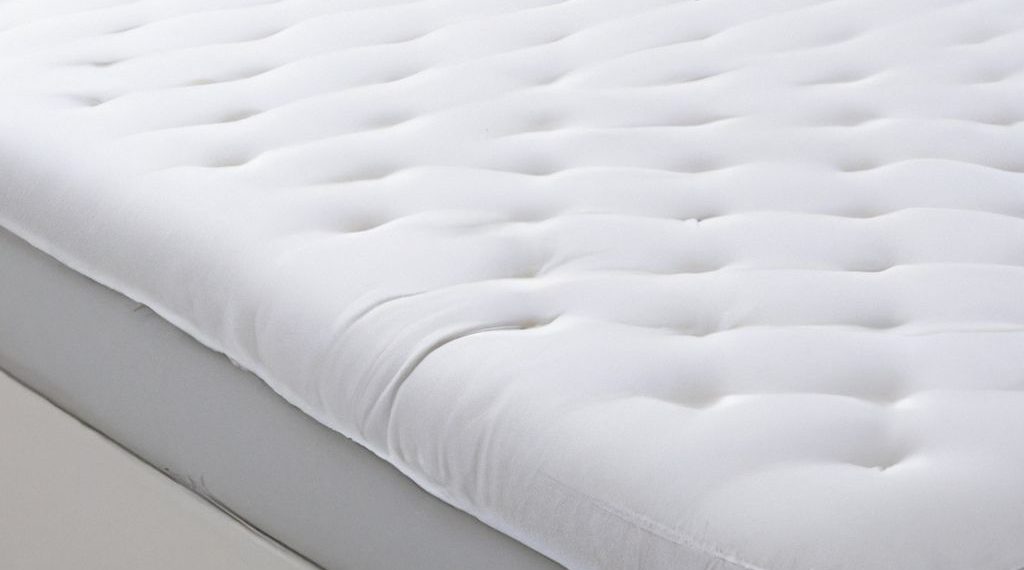Key Takeaway:
- Importance of Finding the Right Mattress Firmness: Choosing the right mattress firmness is crucial for a good night’s sleep and overall comfort.
- Signs of a Too Firm Mattress: A mattress that is too firm can cause discomfort, pain, and sleep disturbances.
- Signs of a Too Soft Mattress: A mattress that is too soft may lack support and can lead to back pain and poor spinal alignment.
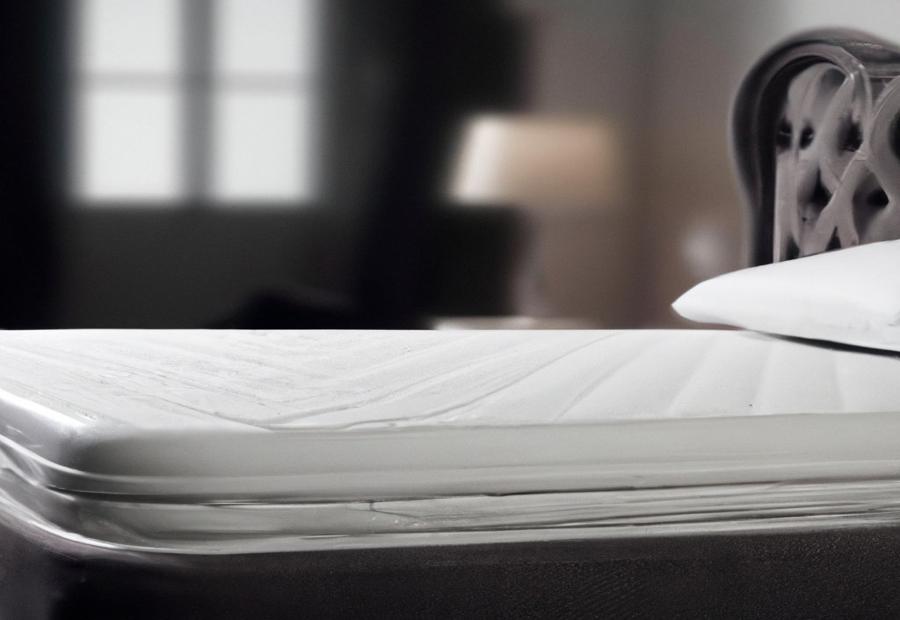
Photo Credits: Www.Mattressreviewguru.Com by Peter Rodriguez
Finding the right mattress firmness is crucial for a good night’s sleep. In this section, we will explore the importance of discovering the perfect balance between softness and firmness in a mattress. Discover how your choice of mattress firmness can impact your sleep quality, spinal alignment, and overall comfort. Don’t compromise on a good night’s sleep let’s dive into the world of mattress firmness and its significance for your well-being.
Importance of Finding the Right Mattress Firmness
Finding the right mattress firmness is important for a good night’s snooze and overall wellness. Too firm and discomfort and pressure points result, leading to restless nights and body aches. Too soft and there’s not enough support, resulting in spinal misalignment and back pain. The key is finding the perfect mattress firmness that offers comfort and supports your body while you sleep.
The right mattress firmness helps the spine stay in its natural curvature. It evenly distributes body weight, reducing strain on back muscles and lessening the chance of chronic pain or spinal issues. Plus, it should cushion your body without sinking too deep, making sleep more restful.
Correct mattress firmness also improves sleep quality by reducing disturbances and allowing muscles to relax. This leads to deeper sleep cycles and reduced tossing and turning. Quality sleep equals energy, focus, and better mental and physical health.
Finding the right mattress firmness is subjective. It depends on personal preferences, body type, and sleeping positions. Some folks like a firmer mattress for support, others prefer a softer bed. Factors like weight distribution, sleeping habits, and medical conditions all play a role in finding the ideal level of firmness.
Don’t forget the mattress firmness when looking for a comfy sleeping surface. It affects comfort levels and long-term health. Consider how hardness or softness affects your body and preferences. With the right mattress firmness, you can expect improved sleep, productivity, and overall well-being. A too-firm mattress? It’s like punishment, not beauty sleep!
Signs of a Too Firm Mattress

Photo Credits: Www.Mattressreviewguru.Com by Douglas Moore
A mattress that is too hard can lead to sleep discomfort. If you wake with aching body parts, particularly the shoulders, hips, or lower back, that could be a clue. Another sign is pressure points in these areas, making sleep tough. Plus, if you’re tossing and turning frequently, it could mean your mattress isn’t cushioning and supporting you. It’s key to get a mattress that suits your comfort preferences and sleeping style for a restful and refreshing sleep.
Signs of a Too Soft Mattress

Photo Credits: Www.Mattressreviewguru.Com by James Walker
A mattress that is too soft can lead to various discomforts and issues. It is crucial to be able to identify the signs of a mattress being too soft in order to make an informed decision about your sleeping surface. Here are some key indicators that suggest a mattress might be too soft:
- Uneven spinal alignment: A mattress that is too soft might not provide adequate support to keep your spine properly aligned. This can result in discomfort and pain in your back, neck, and shoulders.
- Sinkage: When you lie down on a mattress and sink too deeply into it, it is a sign that the mattress is too soft. This sinkage can cause your body to be improperly supported and result in joint pain or pressure points.
- Difficulty getting out of bed: If you find it challenging to get out of bed or feel like you are sinking too much, it might be an indication that your mattress is too soft. This can make it harder to move around and negatively impact your sleep quality.
- Reduced edge support: A mattress that is too soft might lack proper edge support, causing you to feel like you are about to roll off the bed. This can limit the usable surface area of your mattress and lead to a feeling of instability.
- Increased motion transfer: Soft mattresses tend to have higher motion transfer, meaning that movements made by your sleep partner are more likely to disturb your sleep. This can result in poor sleep quality and potential sleep disruptions.
- Lack of responsiveness: A mattress that is too soft might not provide the necessary bounce-back or responsiveness. This can make it difficult to change positions during sleep or maintain a comfortable sleeping posture.
These signs collectively indicate that a mattress is too soft, which can result in discomfort and disrupted sleep. It is important to choose a mattress that provides adequate support and alignment to ensure a restful sleep experience.
It is worth noting that each individual’s preference for mattress firmness may vary, so what might be too soft for one person could be just right for another. However, it is essential to pay attention to these signs and adjust your mattress as needed for optimal comfort and sleep quality.
Factors to Consider when Determining Mattress Firmness

Photo Credits: Www.Mattressreviewguru.Com by Eric Walker
Getting the right mattress firmness is key for a good night’s rest. To find the best fit, there are a few things to consider.
- Sleeping Position:
- Body Weight and Type:
- Personal Preference:
Your sleeping position has an effect on mattress firmness. For back sleepers, a medium-firm to firm mattress will give the right support to the spine. Side sleepers, however, may need a softer mattress to reduce pressure on hips and shoulders. Those who sleep on their stomach may find a firmer mattress more comfortable, avoiding the midsection sinking too far in.
Body weight and type also matter. Heavier individuals may find a firmer mattress better at providing support and not sinking in too much. Lighter people may prefer a softer mattress, as it may conform better to the body.
To determine how firm is a Purple mattress, consider your body weight and type. Heavier individuals may find a firmer mattress better at providing support and not sinking in too much. Lighter people may prefer a softer mattress, as it may conform better to the body.
You can find more information about the firmness of a Purple mattress here.
Your own comfort level is important too. Some like a softer mattress for a plush feel. Others may prefer a firmer mattress for more support. Health conditions or back problems may require a certain level of support.
6 considerations should be taken into account when choosing mattresses for sex-related purposes.
By taking into account your sleeping position, body weight and type, and personal preference, you can decide which mattress firmness works best. This way your mattress will provide the right balance of comfort and support for a good sleep.
How to Determine the Right Mattress Firmness
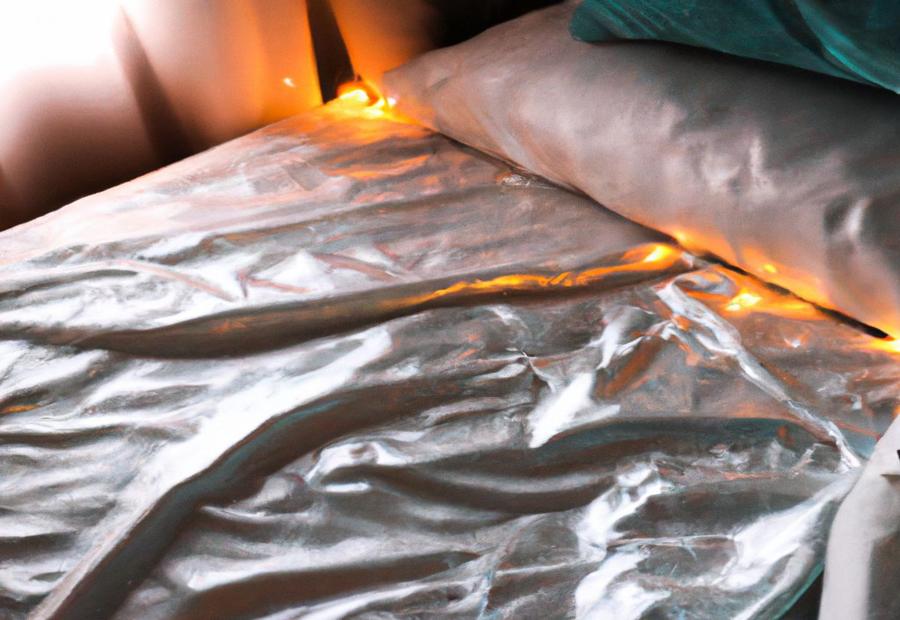
Photo Credits: Www.Mattressreviewguru.Com by Bobby Garcia
Pinpointing the perfect mattress firmness is key for a dreamy night’s rest and general coziness. Knowing how to analyze a mattress’s firmness level will assist you in making the correct decision and picking the ideal firm or soft mattress for you.
To pinpoint the perfect mattress firmness, think of the following:
- Be aware of your sleeping position: Different sleep postures require different levels of firmness. E.g. side sleepers may prefer a softer mattress, while back and stomach sleepers may enjoy a firmer surface.
- Remember your body weight: Heavier people may need a sturdier mattress with better support, while lighter people might find a softer mattress more suitable.
- Assess your spinal alignment: An appropriate mattress should supply satisfactory spinal alignment, helping to keep a neutral position during the night. A mattress that is too soft or firm can cause unease and can possibly lead to back pain.
- Take your personal preferences into account: Ultimately, the ideal mattress firmness is subjective. Test out different firmness levels to find the one that feels most comfortable for you. Consider visiting a mattress store to try out different options before settling on a final choice.
- Investigate and read reviews: To receive an idea of mattress firmness, read customer reviews and research the specific attributes and materials used in the mattress you are examining. This info can give helpful insights into the overall feel and firmness level of the product.
On top of the previously mentioned points, it’s essential to be mindful of special details when pinpointing the perfect mattress firmness. Everyone has different needs and preferences when it comes to support and comfort. By considering factors such as mattress materials, construction, and technology, you can further refine your selection and pick a mattress that offers the perfect firmness level for a tranquil night’s sleep.
Tips for Choosing the Right Mattress Firmness

Photo Credits: Www.Mattressreviewguru.Com by Walter Mitchell
Choosing the right mattress firmness can be overwhelming, with so many options available. To get a comfortable and restful sleep, it is essential to understand the tips for selecting the ideal level of firmness.
Personal factors and preferences need to be taken into account as you make your decision. Consider:
- Sleep position – side sleepers may prefer a softer surface, while back and stomach sleepers may benefit from a firmer one.
- Body weight – heavier individuals usually choose firmer mattresses, while lighter ones typically opt for softer ones.
- Personal preferences – try out different levels of firmness and decide which feels most comfortable to you.
- Health conditions – if you have any health issues, like arthritis or chronic back pain, consult a healthcare professional for tailored recommendations.
- Mattress materials – memory foam, latex, and innerspring mattresses offer varying levels of firmness.
- Customer reviews – seek out reviews and expert opinions to gain insights from other people’s experiences.
Throughout history, finding the right mattress firmness has been a top priority for people looking for a good night’s sleep. From ancient times to modern days, the quest for comfort and support continues. People have figured out that tailored firmness levels address their unique sleep needs, leading to a wide range of mattresses with different firmness levels. With ongoing research and innovation, the options for choosing the perfect mattress firmness are growing, so people can find the perfect sleep surface.
How Mattress Materials Affect Firmness
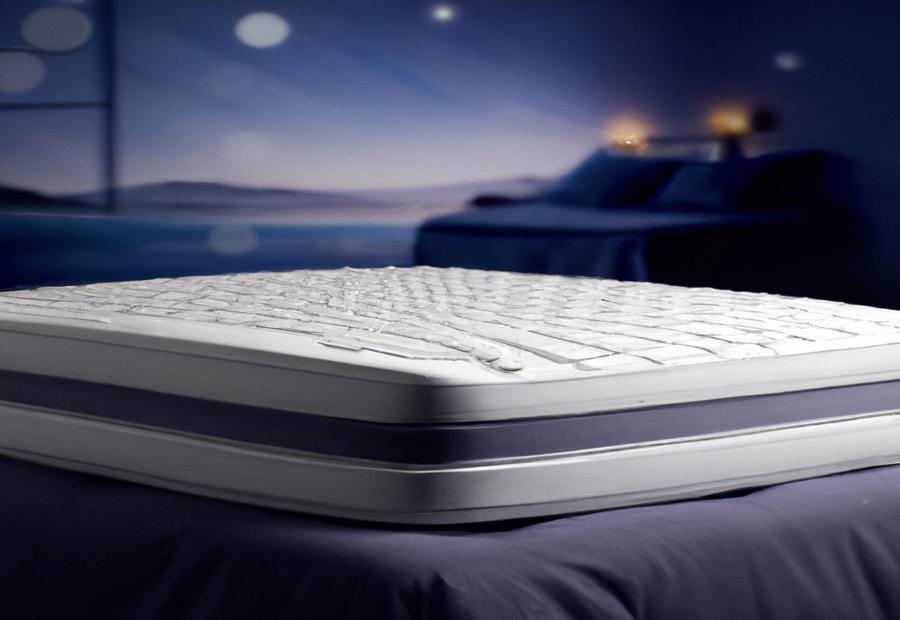
Photo Credits: Www.Mattressreviewguru.Com by Wayne Perez
Mattress materials are key in working out the firmness of a mattress. Different types of materials can impact the feel and support, which directly affects the overall firmness.
- Memory foam:
Memory foam mattresses have a contouring and pressure-relieving sensation. They form to the body’s shape, providing individualized support and comfort. The density of the foam also influences the firmness level, with denser foam usually giving a firmer feel. - Innerspring:
Innerspring mattresses contain a support core of steel coils. The pattern and size of these coils can affect the overall firmness of the mattress. The type of padding and upholstery used with the coils also impacts the feel. - What is the #1 Firm Mattress?
Innerspring mattresses contain a support core of steel coils. The pattern and size of these coils can affect the overall firmness of the mattress. The type of padding and upholstery used with the coils also impacts the feel. - Latex:
Latex mattresses are known for their responsiveness and bounce. They offer a balance between support and contouring, with a more buoyant feel compared to memory foam. The firmness of a latex mattress can vary depending on the production process and the material’s composition. - Hybrid:
Hybrid mattresses combine different materials, usually memory foam or latex with innerspring coils. The combination of materials allows for a range of firmness options, suited to different preferences. The mix of foam and coils determines the feel, offering a blend of support and pressure relief.
Knowing the effect of mattress materials on firmness is key when shopping for one. It allows individuals to pick a mattress that matches their desired level of comfort and support. Taking into account factors such as memory foam, innerspring, latex, and hybrid construction, people can choose a mattress that suits them best.
Mattress materials have improved with research and technology, creating more innovative options. Manufacturers strive to improve comfort, support, and durability in mattresses to meet consumer requirements. So, people now have an extensive range of choices to pick a mattress that has the desired firmness and feel for a sound sleep.
Additional Tips for Adjusting Mattress Firmness
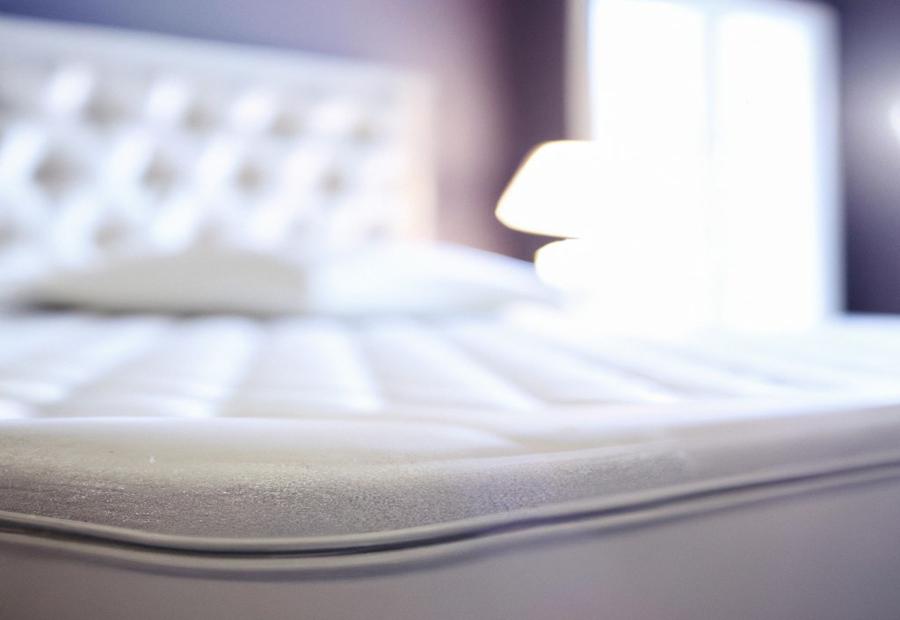
Photo Credits: Www.Mattressreviewguru.Com by Samuel Lopez
- Try a topper. It can make a too-firm mattress softer. Or, a too-soft mattress firmer.
- Flip or rotate the mattress. This spreads out the wear.
- Change the temperature. Cooler makes it firmer. Warmer makes it softer.
- Experiment with different pillow heights and firmness levels.
- Finally, if none of this helps, get a new mattress. One that suits your comfort preference.
Conclusion
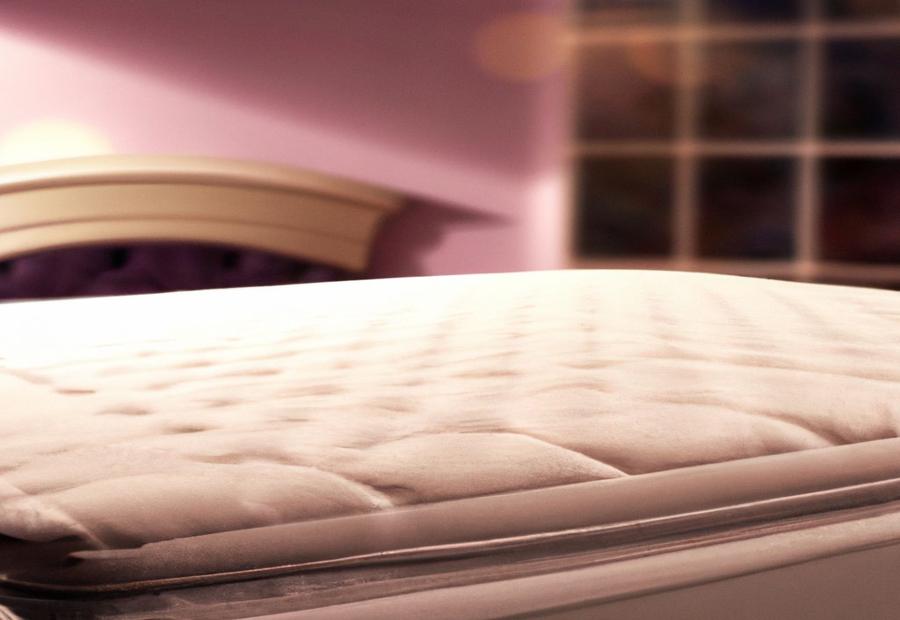
Photo Credits: Www.Mattressreviewguru.Com by Vincent Flores
A mattress that’s too soft or too firm can really affect sleep quality and comfort. To decide if it’s too soft or firm, think about how your body feels. If it sinks in too much and has no support, it’s too soft. If it’s too rigid and causes discomfort, it’s too firm. Sleeping positions also affect firmness – side sleepers usually like softer mattresses, and back or stomach sleepers like firmer ones. To ensure a good night’s rest, a balanced firmness that meets your needs and is comfortable is key. In short, make sure your mattress isn’t too soft or too firm!
Some Facts About How To Tell if Mattress is Too Soft or Firm:
- ✅ If you wake up with back and neck pain, your mattress may be too firm and not providing enough pressure relief. (Source: Team Research)
- ✅ Numbness or tingling in your hands and fingers may be a result of restricted blood flow caused by a lack of pressure relief on a firm mattress. (Source: Team Research)
- ✅ A too-firm mattress may not provide a cradling sensation and may feel like sleeping on a concrete slab. (Source: Team Research)
- ✅ If you toss and turn all night and can’t find a comfortable position, your mattress may not be working for you. (Source: Team Research)
- ✅ Sleeping away from home can help you determine if a softer mattress would provide better rest. (Source: Team Research)
FAQs about How To Tell If Mattress Is Too Soft Or Firm
How can I determine if my mattress is too soft or too firm?
There are several ways to determine if your mattress is too soft or too firm. One method is to perform the “hand test” by lying on your back and slipping your hand under the lumbar area. If your hand struggles to fit, the mattress is too soft. If your hand passes smoothly, the mattress is too firm. Additionally, you can pay attention to signs such as waking up with back, hip, shoulder, or neck pain, experiencing numbness and tingling in your arms, or tossing and turning at night.
What is the recommended level of firmness for different sleep positions?
The ideal level of mattress firmness varies depending on your sleep position. Back and stomach sleepers generally prefer a medium-firm to firm mattress to maintain proper spine alignment. Side sleepers typically do better with a softer mattress to relieve pressure on their shoulders and hips. Stomach sleepers generally prefer a firmer mattress to keep their hips elevated. It’s important to consider your sleep position when choosing the right level of firmness.
Is there a correlation between body weight and mattress firmness preference?
Yes, there is a correlation between body weight and mattress firmness preference. Heavier individuals may prefer a firmer mattress to provide adequate support, while lighter individuals may prefer a softer one. The firmness of the mattress should be chosen based on your body weight to ensure proper comfort and support.
What are the signs that indicate a mattress is too firm or too soft?
If you wake up with back, hip, shoulder, or neck pain, experience numbness and tingling in your arms, or find it difficult to find a comfortable sleeping position, it may indicate that your mattress is too firm. On the other hand, if you have a sore lower back, difficulty getting in and out of bed, or experience night sweats, it may indicate that your mattress is too soft.
Can a mattress topper help adjust the softness or firmness of a mattress?
Yes, adding a mattress topper can be a great way to adjust the softness or firmness of your current mattress. There are various mattress toppers available, such as memory foam or latex, that can provide an extra layer of softness or support. This allows you to customize your sleeping surface without having to replace the entire mattress.
What factors should I consider when choosing the right level of mattress firmness?
When choosing the right level of mattress firmness, factors such as your weight, sleep position, and personal preference should be considered. Heavier individuals may need a firmer mattress for adequate support, while lighter individuals may prefer a softer one. Your sleep position can also influence the ideal firmness level, with side sleepers generally preferring a softer mattress and back or stomach sleepers opting for medium-firm to firm support. Finally, personal preference plays a significant role, so it’s important to test out different mattresses and consider your own comfort preferences.

